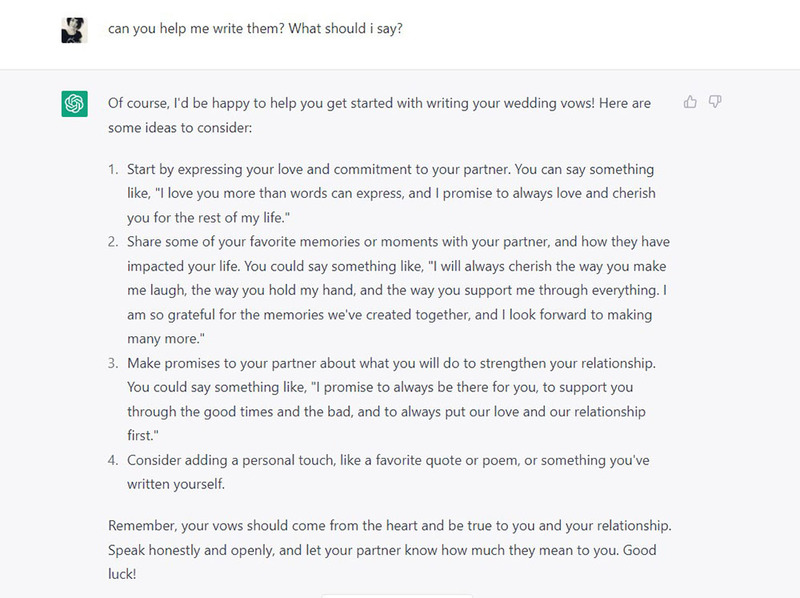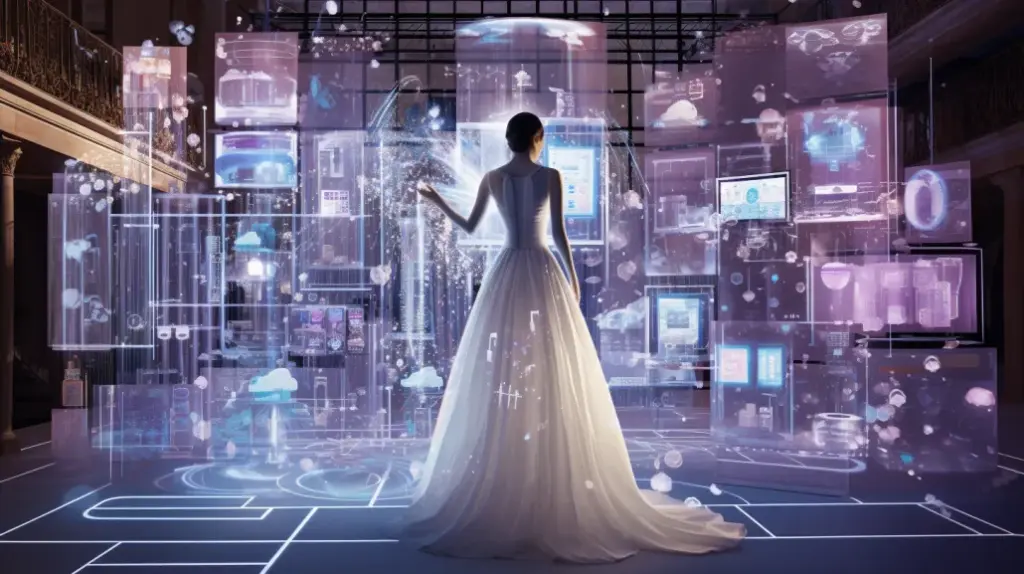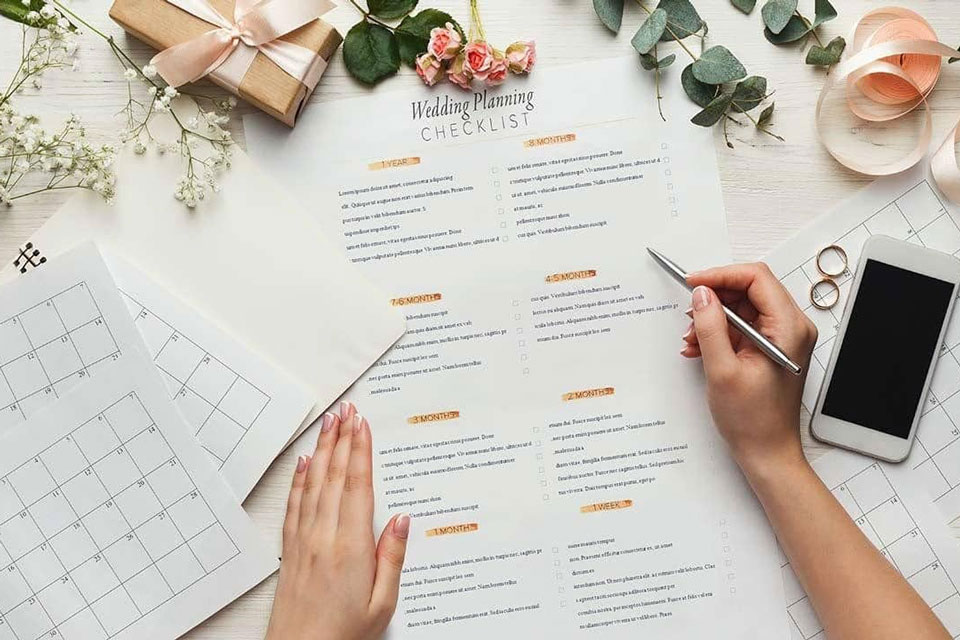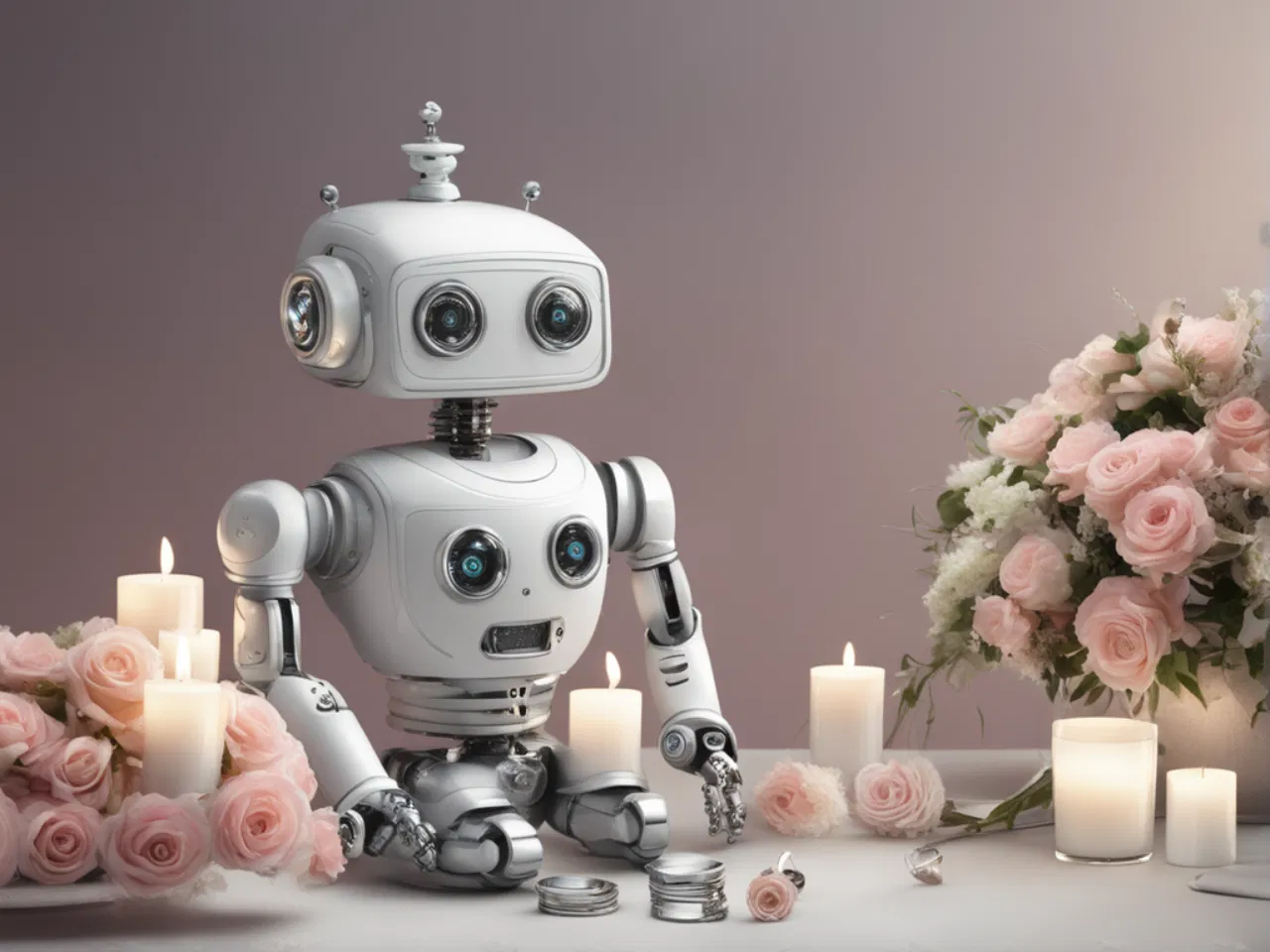Picture this: the day you’ve been dreaming of since childhood, painstakingly built up through years of Pinterest boards, casual fantasies, and movie scene imaginings, is finally here. But instead of flipping through bridal magazines, visiting couturiers`, or arguing lovingly with your mother over the desserts, you open a tab and type: “Plan my wedding.”
ChatGPT. Deepseek. Gemini. The new-age digital confidantes, ready with their algorithmic embrace, offer you instant timelines, aesthetic themes, budget calculators, guest list organisers, seating charts, vow templates, and AI-generated speeches tailored in your voice, no less. The chaos of months of emotional and logistical juggling, once shared across families and friends, is now flattened into a neat UX interface. Drop-down menus, chat windows, rendered visuals, no mess, no tears, just delivery. Incredible? Yes. Efficient? Undoubtedly. But also deeply, almost viscerally, disorienting.

We are, after all, a generation seduced by optimisation. The language of our everyday lives is one of streaming, of filtering, of choosing the “easier” path because we can. Our phones know our desires before we do, our algorithms tell us what to wear, what to eat, how to meditate and everything in between. We want things faster, prettier, and curated. We want control, especially over the milestones that are supposedly the most meaningful. And nowhere is this more glaring than in weddings.
The ceremony, once built on family stories, shared rituals, the smell of marigolds, and last-minute chaos, is now becoming a sleek, airbrushed production. What was once a whirlwind of heartfelt human contradiction—tears, tension, laughter, error, and grace is slowly being replaced by digital choreography. Weddings have become solvable. Processed. Delivered. But what happens when something as elemental as love becomes data? What does it mean to let artificial intelligence; trained on millions of search histories and trend cycles, dictate the most personal day of your life?
This isn’t just about wedding planning. It’s a larger cultural condition. A creeping shift. We’re slowly but surely outsourcing not just labour, but decision-making. Not just assistance, but intuition. The sacred is becoming systematised. The once intimate has been handed over to cold hands that don’t feel, don’t know you, and don’t remember what your grandmother’s laugh sounds like. Or how your partner looked at you when you first knew. And yet, we tell ourselves it’s fine. That it’s smart, modern, efficient. We rationalise. After all, who has the time to plan a wedding anymore? Why waste weekends on vendor calls and floral trials when a chatbot can assemble a five-star vendor list in seconds? Why write your own vows when AI can “help” you express exactly what you feel, without the risk of getting emotional, or saying too much, or too little?

Because emotions are, increasingly, seen as risks. Something to mitigate. Something to clean up in a post. But is that not the point? That weddings are supposed to be emotional, meddy, unpredictable, alive? That even in their most extravagant or minimalist forms, they are still about people and not platforms.
Capitalism, of course, loves this evolution. It thrives on it. A bride who not only spends but automates her spending, a couple who not only wants the best but wants it instantly, these are the dream customers. You are no longer just a consumer; you are a predictable consumer. A pattern. A profile. Your desires no longer spring from your soul, but from a system of “people like you also bought…” And so, the AI wedding planner becomes not just a service, but the final frontier of the wedding industrial complex. An industry that once sold dreams, now sells perfection. Personalisation without personality. Taste without time. Beauty without memory.
The floral arrangements will be stunning. The playlist will be vibey. The speeches will be tear-jerking, just vague enough to be universal, just intimate enough to move your guests. It will all feel perfect. But will it feel like you? Or will it feel like a version of you designed from aesthetic preferences, Instagram saves, and a smattering of metadata? There is a difference, an important one, between personalised and personal. Between tailored and felt. Between pleasing and true.


Weddings, at their essence, are about surrender, they are not about control, rather, about allowing yourself to be seen; by the one you love and by the community that raised you. They are about imperfection, about vulnerability. About that raw, breathless pause before you say “I do,” knowing there is no manual for what comes next. That is the magic, that is sacred and cannot be optimised. We forget that the things we remember most—the ones we tell stories about for decades are rarely the ones that went according to plan. They are the mistakes. The spilled wine. The wind that ruined the decor but made the photos better. The uncle who improvised a speech that made everyone weep. The friend who forgot the rings and ran a km in a lehenga to retrieve them. These aren’t glitches in the matrix. They are the matrix. They are memory.
But more and more, we’re being taught to believe that those moments are flaws. That imperfection is a bug, not a feature. That love should be clean, not clumsy. That your wedding should be a brand, not a blur. That your love story should be presented, not lived. And maybe, yes, it’s tempting. Maybe you’re exhausted. Maybe you want to make things easier. Maybe the chaos isn’t romantic, it’s just…chaotic. So you prompt the AI. You follow the system. You plan your dream wedding with tools that never sleep, never cry, never doubt. You remove the mess. You gain control. But at what cost?
Because when we allow AI to design our most intimate rituals, we begin to detach from the very things those rituals were meant to do: connect us to each others, our families, our culture, and to ourselves. You don’t marry your past but a version of yourself that no algorithm will every understand; because it is still forming. Weddings aren’t just events, they are rites of passage which demand your participation and not just your preferences. They demand your presence, your nervous laughter, your trembling voice, your makeup running, your arms around your mother at the end of the night. These are not things that can be coded. They cannot be scheduled. They cannot be produced.
So before you outsource your love story to a large language model, before you prompt an AI to write your vows, or plan your entry, or design your wedding hashtag, ask yourself this:
Whose voice is really being heard here?
Who’s writing this story—you or a system trained on everyone else’s?
Will your AI wedding be beautiful? Of course.
Will it be unforgettable? That depends entirely on how much of you you’ve left in it.
Because of we are not careful, the most intimate moments of our lives will quietly, elegantly, become products and not memories, not emotions, not stories for our children and grandchildren. But just another perfect reel in the endless scroll; a performance designed for the algorithm, and not for the heart.
And someday, you will look back on it and wonder, “was it perfect?” but “was it mine?”













